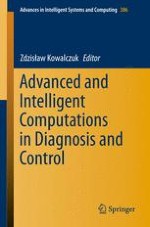2016 | OriginalPaper | Buchkapitel
Fault Detection Method Using Context-Based Approach
verfasst von : Mateusz Kalisch
Erschienen in: Advanced and Intelligent Computations in Diagnosis and Control
Aktivieren Sie unsere intelligente Suche, um passende Fachinhalte oder Patente zu finden.
Wählen Sie Textabschnitte aus um mit Künstlicher Intelligenz passenden Patente zu finden. powered by
Markieren Sie Textabschnitte, um KI-gestützt weitere passende Inhalte zu finden. powered by
